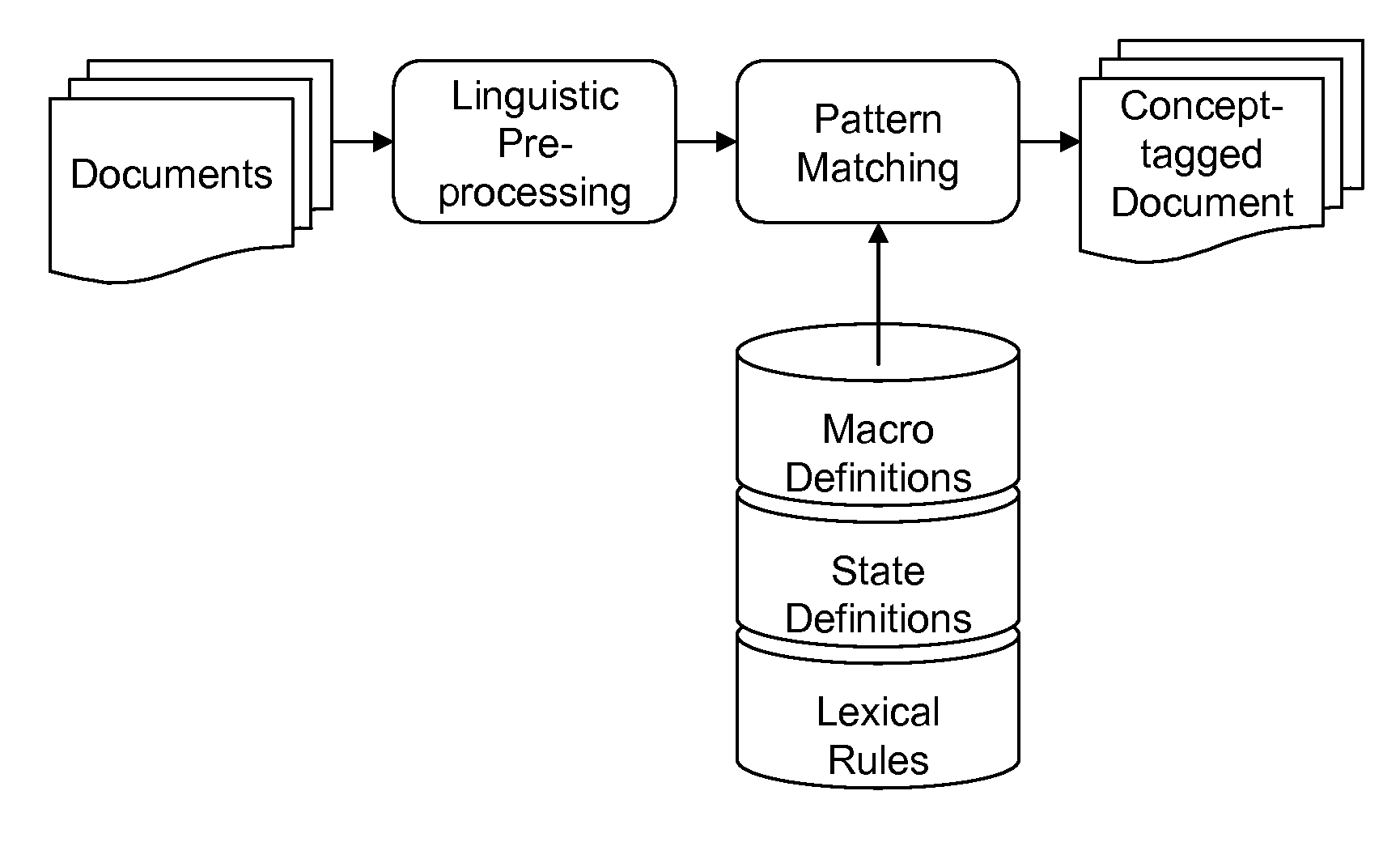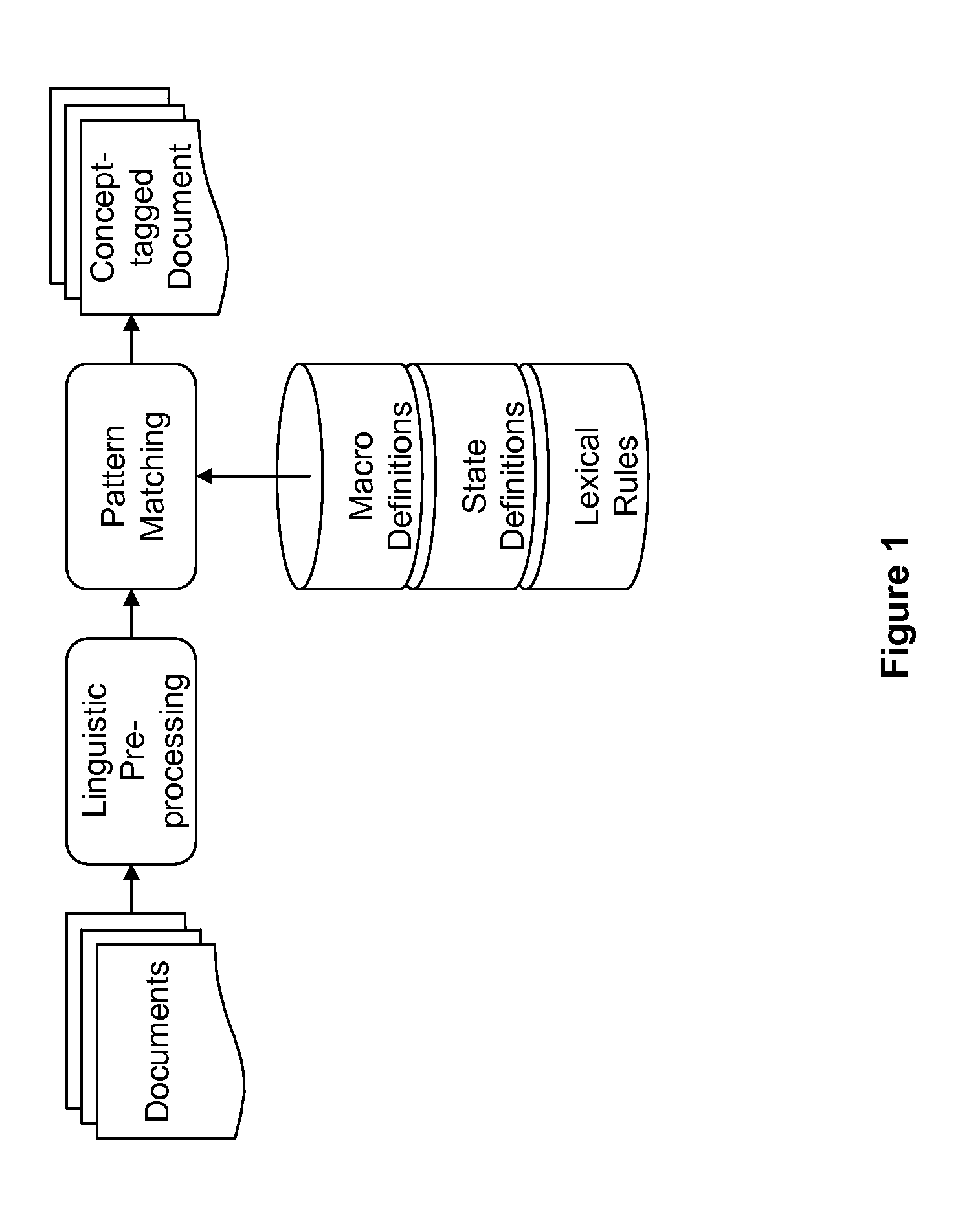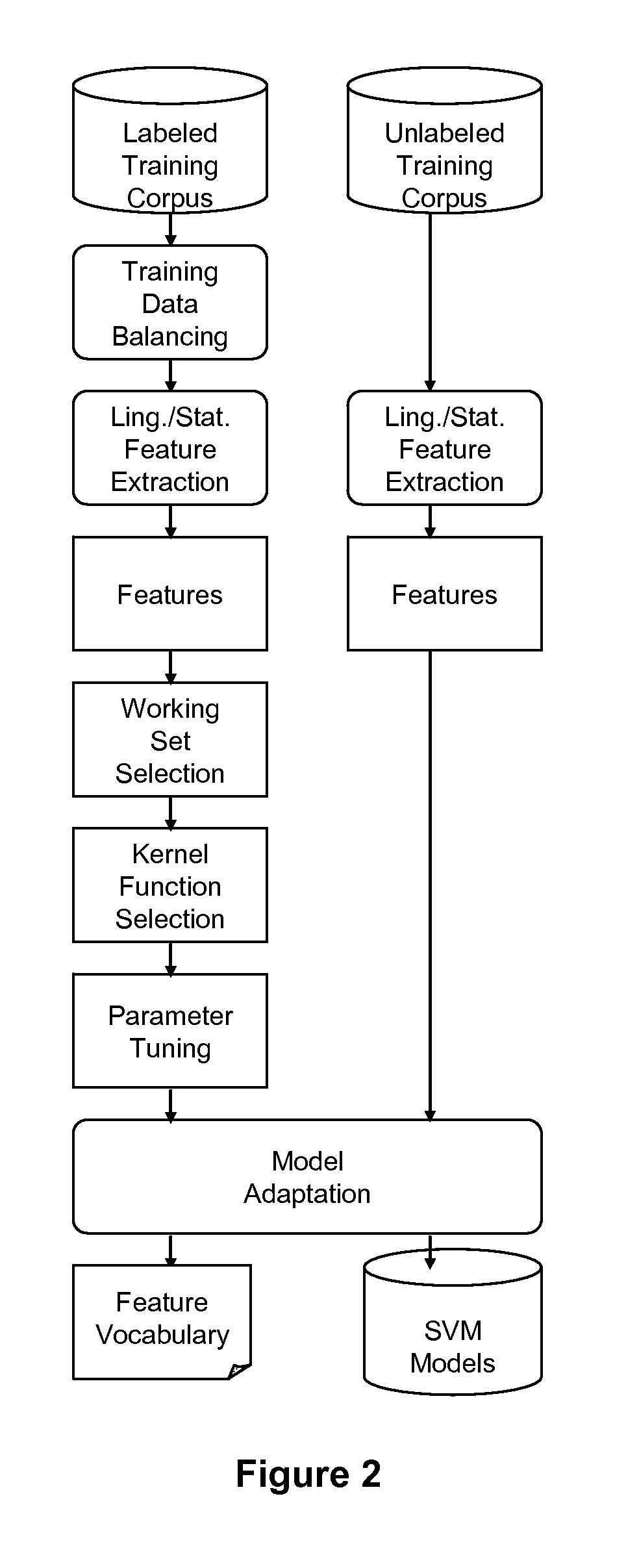Robust Information Extraction From Utterances
- Summary
- Abstract
- Description
- Claims
- Application Information
AI Technical Summary
Benefits of technology
Problems solved by technology
Method used
Image
Examples
Embodiment Construction
[0021]We will describe our specific effort using support vector machines (SVMs), but any classification algorithm can be used in their place. SVMs are based on the structural risk minimization principle from machine learning theory. The underlining principle of SVM is to map the training vectors into a higher dimension using kernel method, and then try to find the separating hyper-planes with maximal margin in the higher dimension space. The SVM system contains three major components, namely feature extractor, training system, and the classifier.
[0022]The classification is independent of language. However, any non-statistical features, such as word part-of-speech or concept labeling, needs to be provided for that language.
[0023]The invention is applied to situations where a spoken utterance needs to be mapped to a class. A class in the set of classes can refer to any group of one or more sentences upon which a learning algorithm may be trained. The more training examples for any giv...
PUM
 Login to View More
Login to View More Abstract
Description
Claims
Application Information
 Login to View More
Login to View More - R&D
- Intellectual Property
- Life Sciences
- Materials
- Tech Scout
- Unparalleled Data Quality
- Higher Quality Content
- 60% Fewer Hallucinations
Browse by: Latest US Patents, China's latest patents, Technical Efficacy Thesaurus, Application Domain, Technology Topic, Popular Technical Reports.
© 2025 PatSnap. All rights reserved.Legal|Privacy policy|Modern Slavery Act Transparency Statement|Sitemap|About US| Contact US: help@patsnap.com



